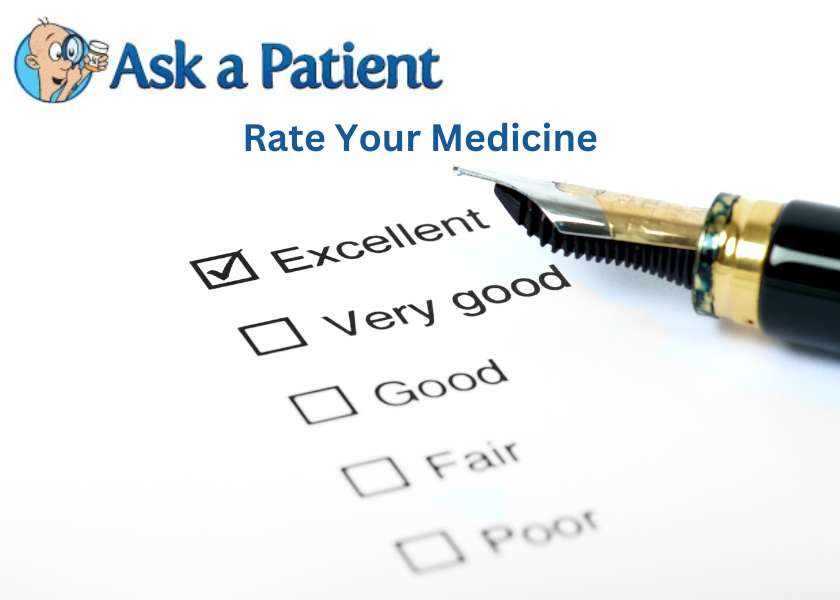January 7, 2024: Happy New Year
Nexletol for lowering cholesterol; Opioid, beta blocker safety label changes; FDA to review emerging side effects of Ozempic and other GLP-1s; generics news; insulin price drop; healthy food tips
FDA Label Changes and Safety Concerns
The cholesterol-lowering drug that is NOT a statin, Nexletol, received expanded FDA approval. It is no longer required that a statin drug be taken along with it. Many people are statin-intolerant and find that the once-a-day Nexletol pill works well for lowering LDL cholesterol. Drug maker Esperion is also seeking FDA approval for cardiovascular risk-reduction indications for Nexletol, with a decision expected early this year.
https://uk.finance.yahoo.com/news/fda-updates-labels-esperions-espr-163300108.html
Revised Nexletol Drug Label
Nexletol reviews on Ask a Patient website
The FDA has received multiple reports of new side effects for semaglutide and other glucagon-like peptide-1 (GLP-1) receptor agonists (like Ozempic, Victoza, Wegovy, Rybelsus, Saxenda, Byduren, Trulicity, Byetta and Mounjaro) through the FDA Adverse Events Reporting System (FAERS). It is “evaluating the need for regulatory action” with regard to these adverse events for 13 drugs in the category. The emerging side effects are: hair loss (alopecia), suicidal ideation or depression, and aspirating (airway obstruction). Gastrointestinal issues such as nausea, diarrhea and constipation are the most common side effects listed on GLP-1 drug labels, but the labels do not mention the hair loss, depression, or aspiration side effects. This page includes other drugs with potential signals for serious risks; scroll down to the middle for the GLP-1 drugs of concern.
https://www.fda.gov/drugs/questions-and-answers-fdas-adverse-event-reporting-system-faers/july-september-2023-potential-signals-serious-risksnew-safety-information-identified-fda-adverse
Check Ask a Patient for reports of
Ozempic and breathing problems (only two reported)
The Hill reported on the FDA investigation of new side effects.
Related: Some patients taking GLP-1 drugs are experiencing other serious side effects. A man is suing Eli Lilly claiming that its Mounjaro drug caused a permanent condition of gastroparesis (when the stomach can't empty its contents). Business Insider reports that "Blake" had recently started taking the weekly diabetes medication Mounjaro and became very ill after just two injected doses. His doctors say that he'll probably have to live with gastroparesis for life.
https://www.businessinsider.com/mounjaro-lawsuit-alleges-stomach-is-paralyzed-from-glp-1-use-2023-12
Mounjaro reviews on Ask a Patient
All opioid pain medication labels were updated with various warnings, which included: meds should not be used for more than a few days for acute pain treated in an outpatient setting, the risk of overdose increases as the dosage increases for all opioid pain medicines, the risk of opioid-induced hyperalgesia (increase in pain), and other risks. Manufacturers of immediate-release and extended-release opioid pain drugs were notified in April 2023 of the required label changes, and the FDA announced the final approval and implementation of the label changes on December 15, 2023. About 70 drugs were affected including Actiq (fentanyl citrate), Codeine, Darvon, Dermerol, Methadone, Morphine, MS Contin, Nucynta, Suboxone, and more.
https://www.fda.gov/drugs/drug-safety-and-availability/fda-approves-safety-labeling-changes-opioid-pain-medicines
Many drug safety label changes were made to various drugs in the beta blockers category. Beta blockers are used to treat high blood pressure. The labels now warn that beta blockers may mask early warning signs of hypoglycemia, such as tachycardia, and increase the risk for severe or prolonged hypoglycemia.
Ziac: https://www.accessdata.fda.gov/scripts/cder/safetylabelingchanges/index.cfm?event=searchdetail.page&DrugNameID=2312
Lopressor: https://www.accessdata.fda.gov/scripts/cder/safetylabelingchanges/index.cfm?event=searchdetail.page&DrugNameID=2307
Atenolol (Tenoretic, Tenormin): https://www.accessdata.fda.gov/scripts/cder/safetylabelingchanges/index.cfm?event=searchdetail.page&DrugNameID=2907
Generic Drugs
GSK announced that its popular asthma inhalers Flovent (aerosol) and Flovent Diskus (powder) will be discontinued on January 1, 2024, to be only available as an "authorized generics." Authorized generics are made with the same formulation, but critics are concerned about patient access to the drug and that it will be more expensive than the branded version because it may not be covered by insurance plans. For example, CBS reports that CVS is giving AstraZeneca's Pulmicort preferential treatment over the authorized Flovent generic.
https://www.cbsnews.com/boston/news/asthma-inhaler-switch-flovent-generic-january-2024-cnn/
What should you do if you only have a prescription for Flovent? "The Checkup" suggests alternative medications and some actions patients can take.
https://www.singlecare.com/blog/news/flovent-discontinued/
What's the difference between a regular generic, an authorized generic, and a "branded" generic? Check out our article on Ask a Patient:
"Generic Drug Types Explained."
Who earns more money from generic drug sales: Pharmacy Benefit Managers (PBMs) or the drug manufacturers? According to a study by researchers at Johns Hopkins and the University of Utah, PBMs do, by far. The researchers looked at the 45 most commonly used generic medications taken by patients enrolled in a Medicare Part D pharmacy plan in 2021. They found that for every $100 spent by the Part D plans, $41 went to the PBMs, $30 to the manufacturers, $17 to the pharmacies, and $12 to the wholesalers. The study was published in JAMA Network Open.
https://www.healthcare-economist.com/2023/10/26/who-earns-more-money-from-generic-drug-sales-pbms-or-drug-manufacturers/
For more on this topic, check out Wendell Potter’s post:
Insulin Prices
In January 2023, monthly insulin co-pays were capped at $35 for Medicare patients with diabetes. Starting in 2024, all U.S. patients will have access to those cheaper insulin prices, with some companies making the prices effective January 1. Sanofi (maker of Lantus), Novo Nordisk and Eli Lilly , and Amazon Pharmacy plan to make the price cuts this year.
https://www.kiplinger.com/personal-finance/health-insurance/insulin-price-caps
Food as Medicine: Tips
Seven types of foods that are good for your liver include extra virgin olive oil, berries, oatmeal and whole grains, coffee and green tea, lean protein, omega-3 fatty acids (such as found in fatty fish and nuts), and vitamin E-rich broccoli (as well as other cruciferous vegetables).
https://www.singlecare.com/blog/liver-healthy-foods/
Spirulina is a blue-green algae that is a popular health supplement. As a powder, it can be added to smoothies or used in recipes. It is also available in pill or gummy form. What can it do for you and should you take it? MedShadow Foundation explains that while it is not for everyone, it may boost your iron levels, reduce cholesterol levels, or have other health benefits.
https://medshadow.org/is-spirulina-good-for-you/
Nutrition-wise, it sounds great, but how does it taste? People describe this "superfood of the sea" as having a seaweed-like flavor. But a Bon Appétit food editor found the taste of blue majik (a version of spirulina) to be very off-putting, describing the smell as a "slimy green pylon under a rotten wooden dock. At low tide." Check out "I Spent An Entire Week Trying to Make Spirulina Taste Good."
https://www.bonappetit.com/story/how-to-use-blue-majik
Have you used any of the drugs mentioned in this newsletter? Our website is very much in need of NEW drug ratings and reviews! Please take a minute (that's all it takes!- no log-on required) to rate it on a scale of 1 to 5. You are not required to fill out any field except the numerical rating. The following links take you straight to the rating form. If you don’t see your drug listed below, simply search for it at the top of the page then click “Rate Drug” in the right hand column of search results. Thank you!

Thank you for reading this newsletter. Our general edition, covering diseases, diagnosis, and other health topics, will be sent on Wednesday January 10. If you have not yet subscribed, sign up on our website: askapatient.com.



